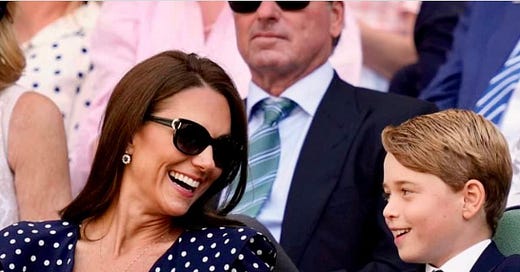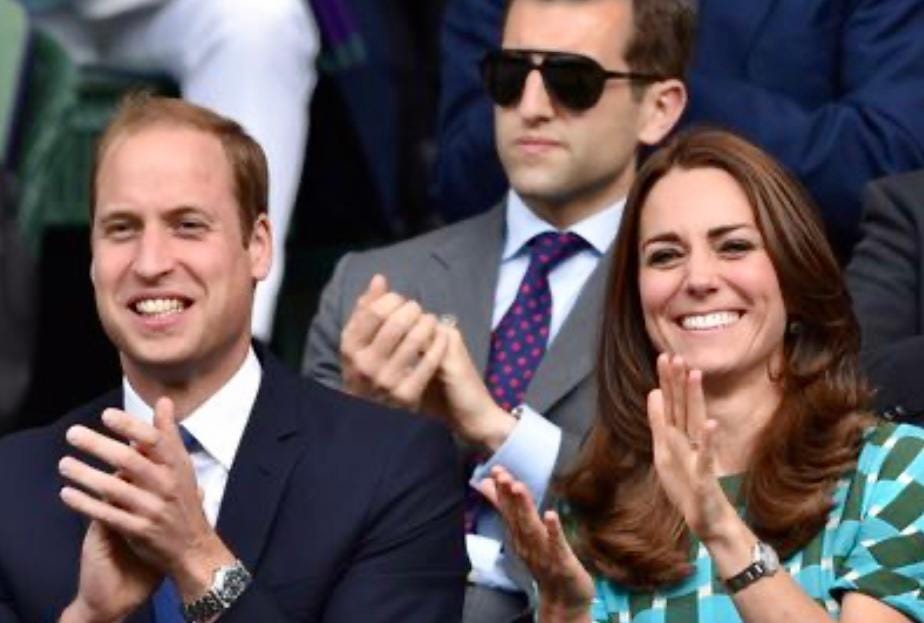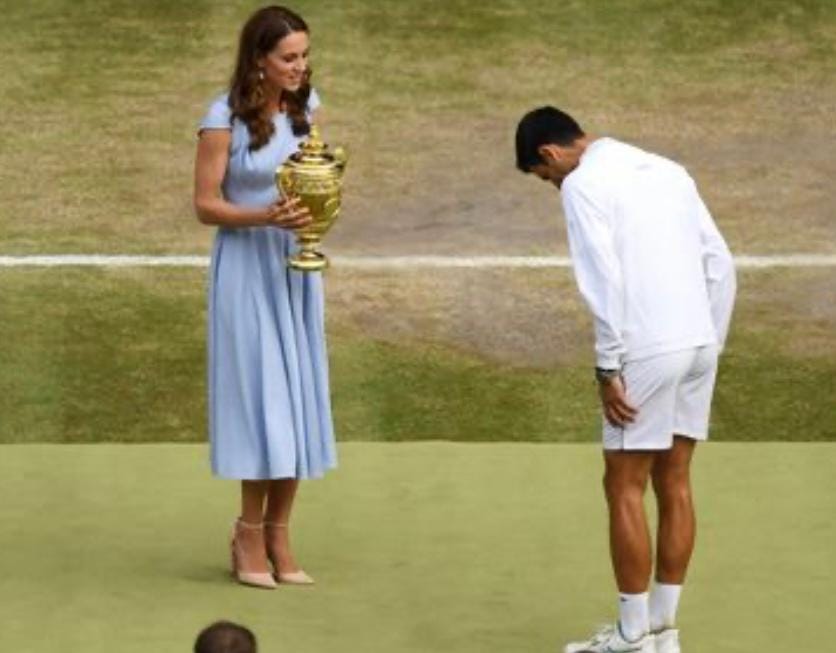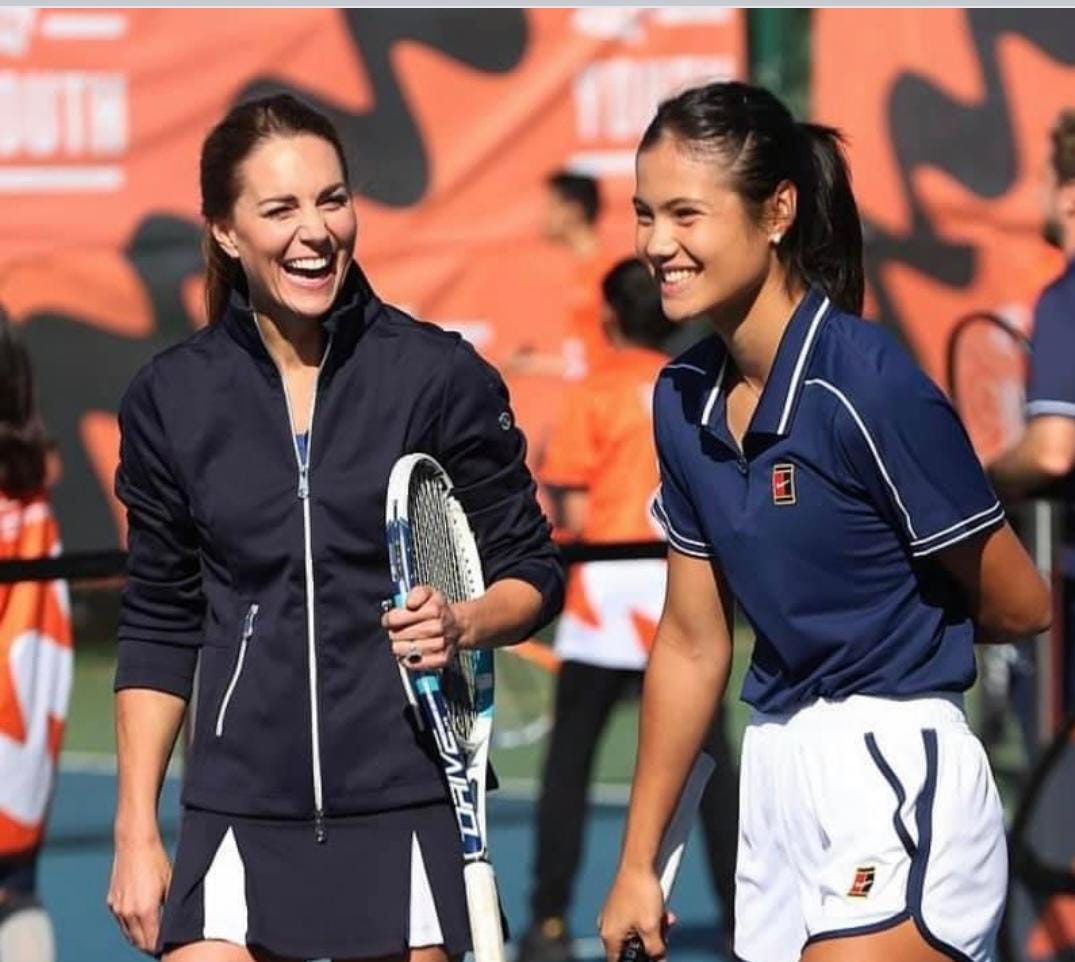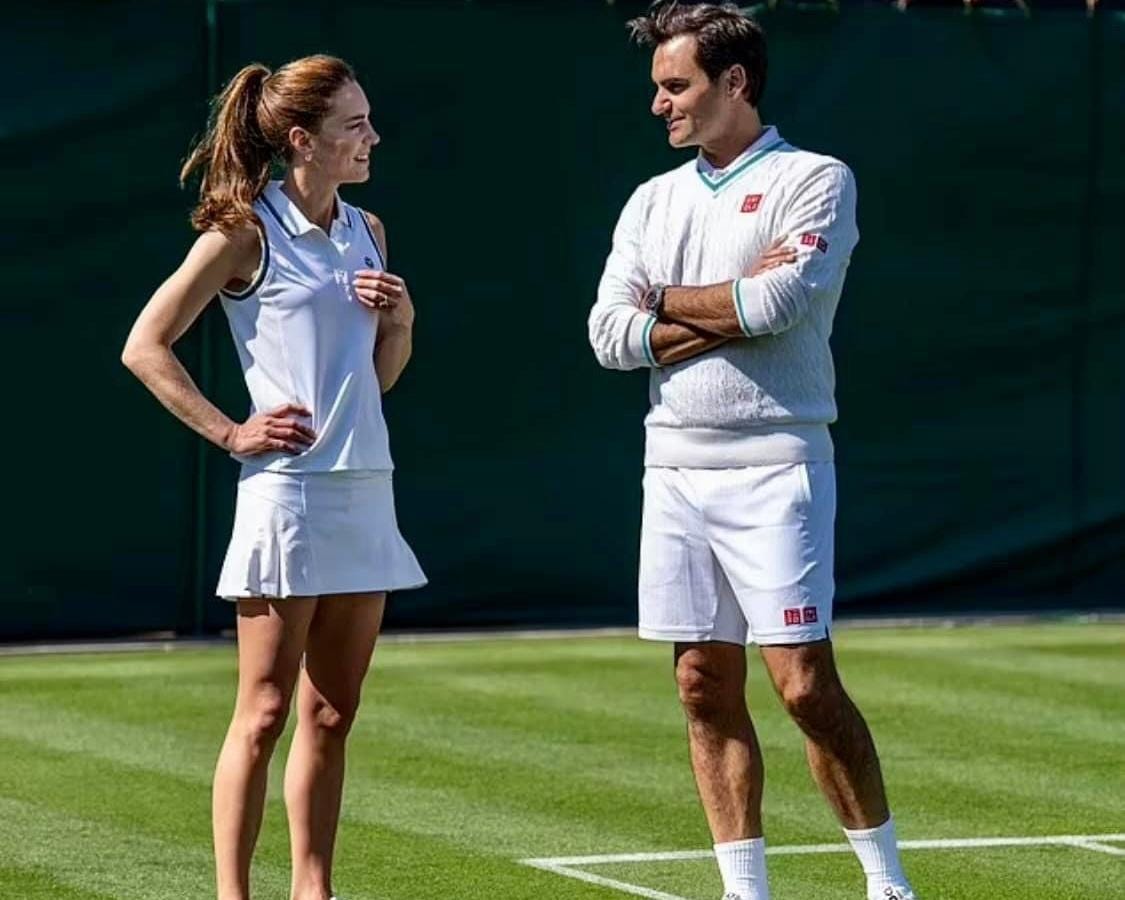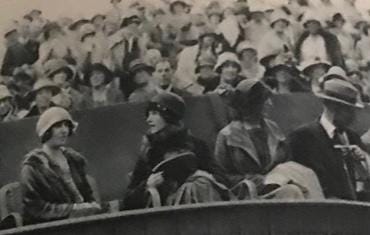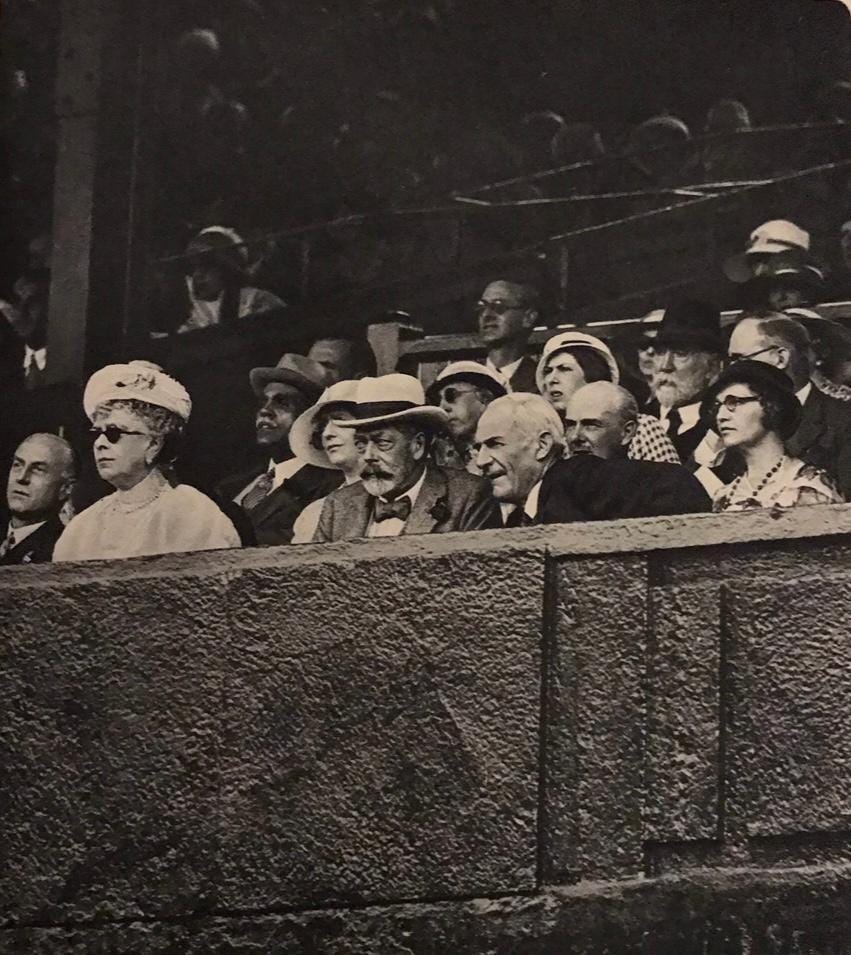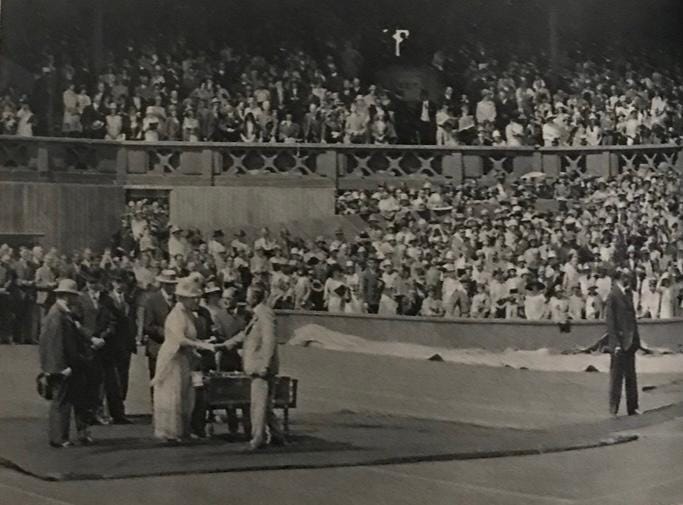A Royals Extra Quiz: Name the most prominent royal fan of the Wimbledon Tennis Tournament
And which member of the royal family actually played a match at London’s All England Lawn Tennis and Croquet Club?
Okay, the answer to the first question is easy: Catherine, the Princess of Wales. But there was another unlikely royal fan of the tournament who in an early 20th century fashion could match Kate’s interest, without ever picking up a racket.
As we hit the 2023 midpoint in the famous tournament, it’s also worth remembering an ill-starred Wimbledon doubles match played by Prince Albert, the future King George VI, with his mentor and tennis instructor, Louis Greig.
But let’s begin with the fandom: Kate has been a keen tennis player and devotee of the sport from an early age. She was spotted in the stands at Wimbledon in 2007, when she was dating Prince William but didn’t appear with him.
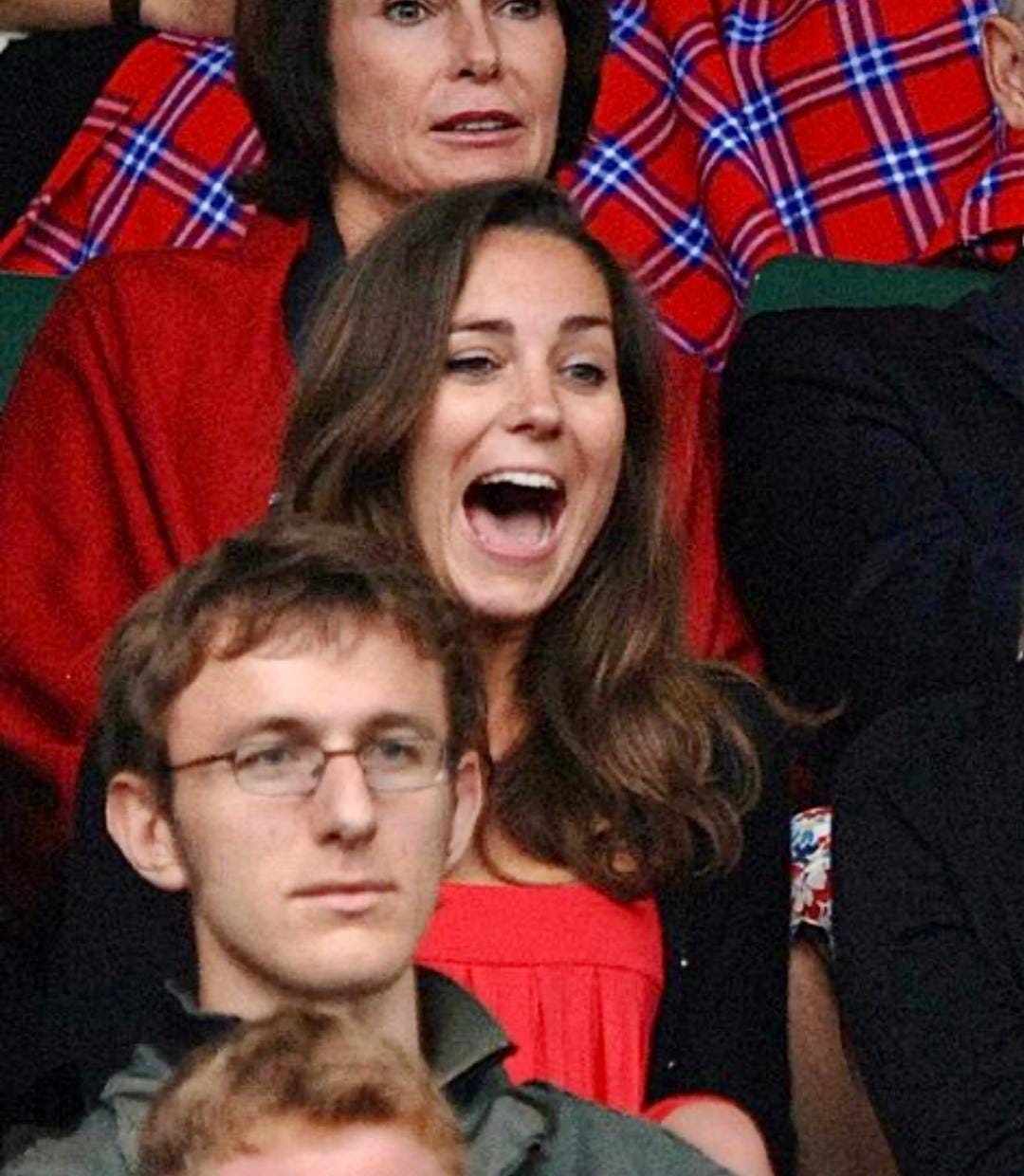
In June 2011, newlyweds Prince William, now the Duke of Cambridge, and Catherine, the Duchess of Cambridge appeared in the royal box for the first time.
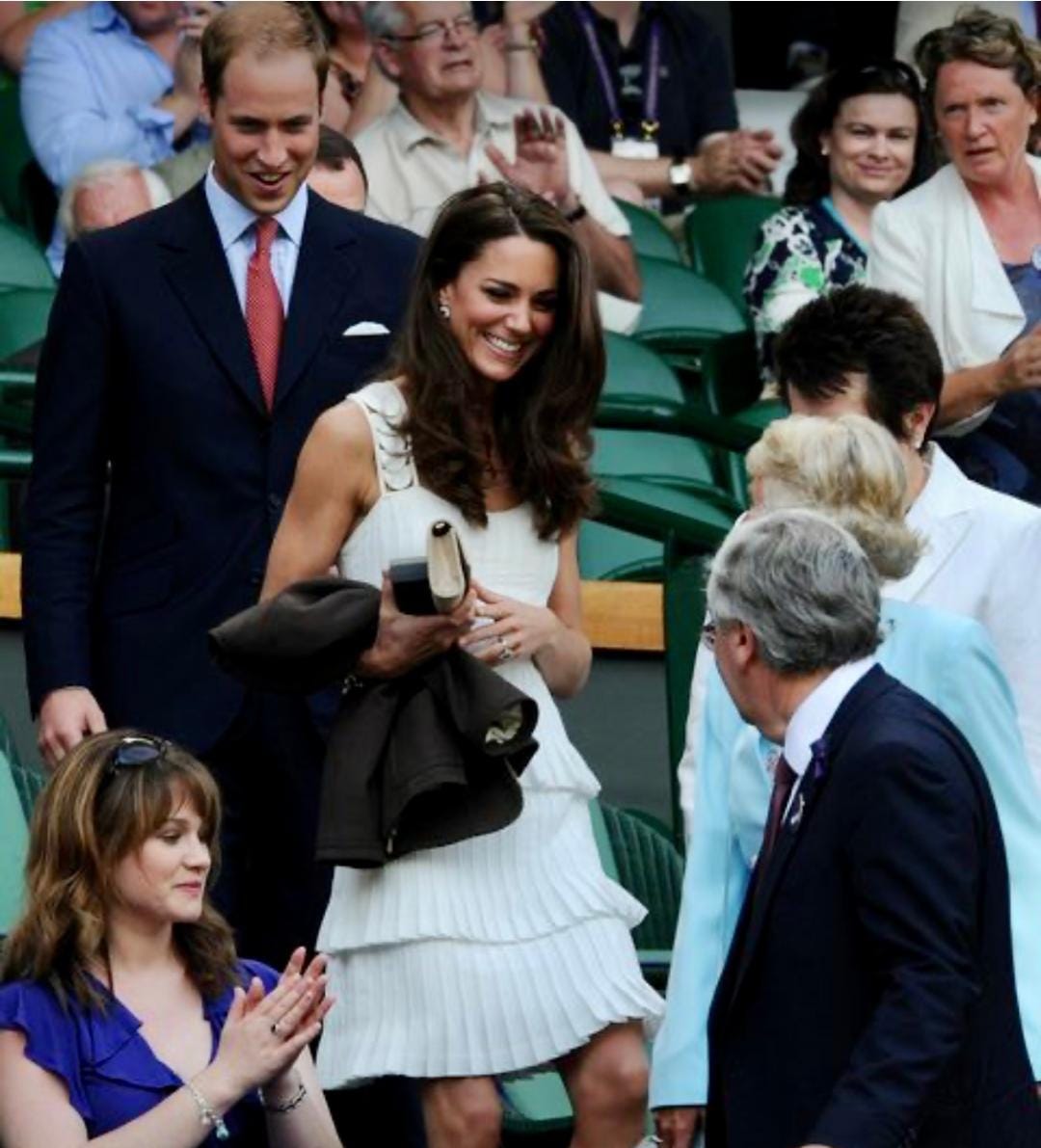
Kate missed the tournament in 2013 because she was pregnant with Prince George, but she and William excitedly watched the men’s singles final in 2014.
Every year since then, with the exception of 2020 when Wimbledon had to shut down during the Covid-19 lockdown, Kate has sat courtside for at least one day of matches. In 2016 she took over from Queen Elizabeth II as the royal patron of the All England Lawn Tennis and Croquet Club (AELTC). The Queen’s first cousin, the Duke of Kent, continued to serve as president of AELTC and presented trophies at Wimbledon to the winners until he stepped down in 2021.
Kate presided over a trophy ceremony for the first time in 2019 when she gave the men’s singles prize to Novak Djokovic after his defeat of Roger Federer following a record-shattering five-hour match.
Kate also sat in the royal box at Wimbledon twice with Meghan, the Duchess of Sussex, in 2018 and 2019. They looked happy, right?
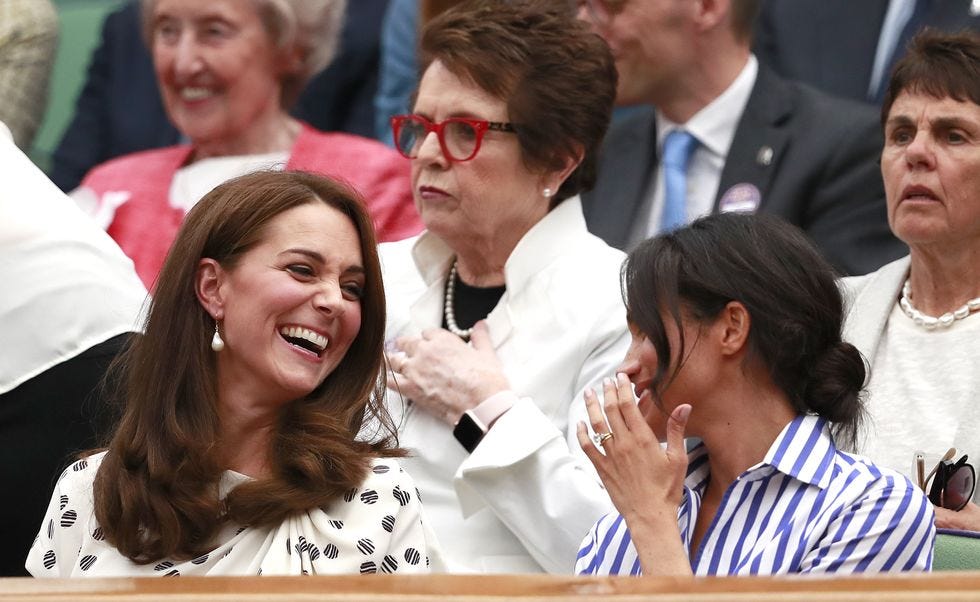
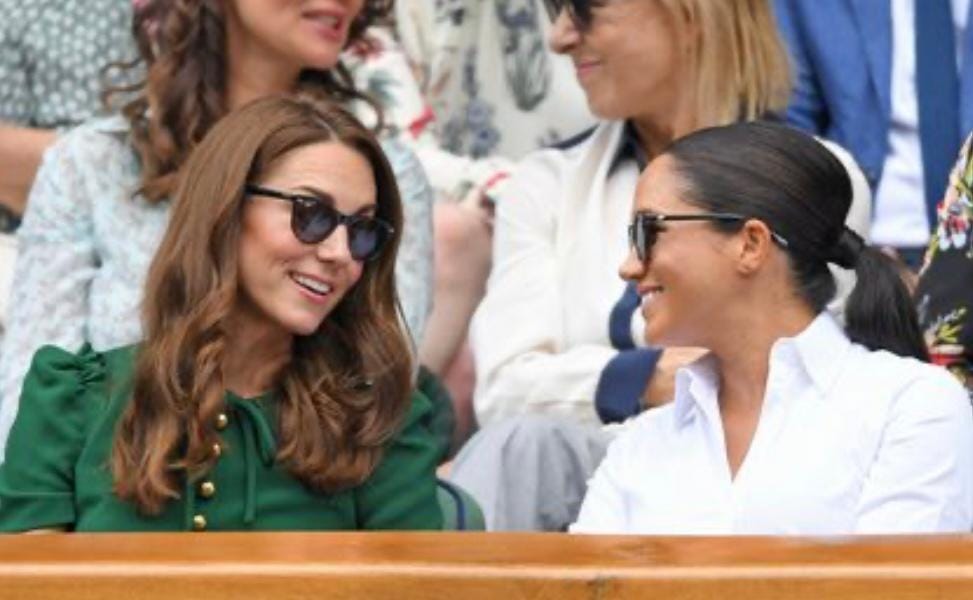
In recent years, Kate has been confident enough to play a couple of knock-around games with tennis champions. After 18-year-old Emma Raducanu won the US Open in 2021, she and Kate, then 39, had a spirited exhibition match at the National Tennis Centre in London. Afterwards, Emma said that Kate’s forehand was “incredible. I was very impressed.”
Kate took to the court again last month, this time with champion Roger Federer after they had watched Wimbledon ball boys and ball girls go through their training paces. On Court Number Three they played doubles against each other in a congenial game.
There was no pressure, unlike the situation faced by Prince William’s great-grandfather, then the Duke of York, on June 25, 1926, when he stepped onto Wimbledon’s Number Two court for the first round of the men’s doubles championship. Thirty-year-old Prince Albert (known to friends and family as “Bertie”) was described as a “strong left-handed player,” and 45-year-old Louis Greig was a well-respected competitor. But they didn’t have a chance when faced with opponents who had won Wimbledon multiple times.
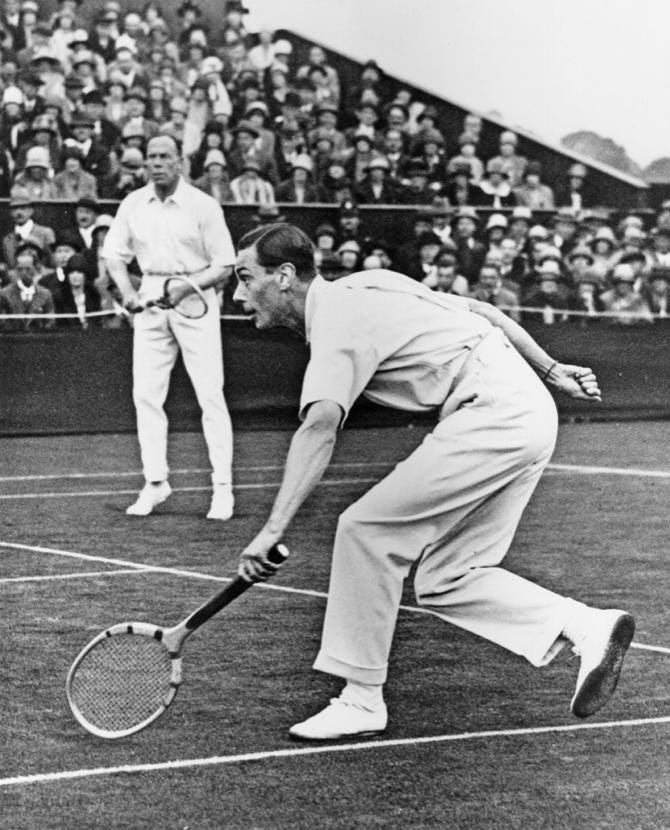
Bertie felt anxious about playing in front of large and noisy crowds, and he was rattled from the outset. As he was “lashing out wildly,” Louis ran around the court trying to catch the shots Bertie was missing. “Try the other hand, Sir!” the spectators shouted.
Bertie’s wife Elizabeth, the Duchess of York, sat in the royal box and stoically watched her husband go down to a humiliating defeat in straight sets: 1-6, 3-6, and 2-6. Bertie never again played tennis in public.
One spectator absent that day was Bertie’s mother, Queen Mary, who had been a fixture at Wimbledon since 1919. She routinely recorded her restrained but appreciative comments in her diary: “Most exciting” ladies singles finals in July 1919, when she handed out medals to “ladies & gentlemen who have held championships for the last 50 years.”
In 1926, she attended Wimbledon twice, on June 21st and 30th, taking in “wonderful matches” one day, and a “dull game” on the other. She politely refrained from discussing her son’s loss, however.

